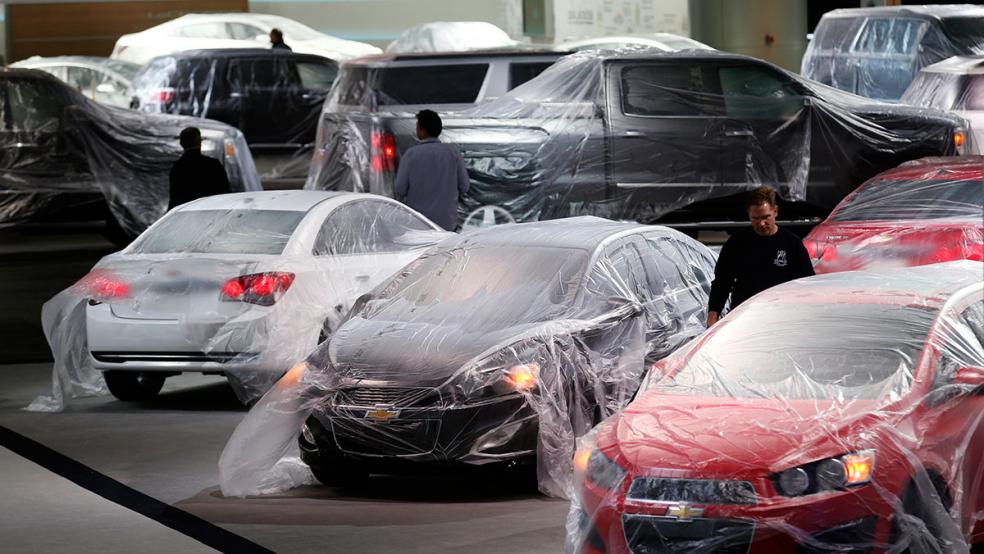Warren Buffett often makes investments that are out of reach for ordinary investors. But in the case of his recent car dealership deal, there's a rare chance to join him for the ride. Last week, the Oracle of Omaha bought privately owned car dealership Van Tuyl Group for an undisclosed sum.
The deal surprised some observers because annual domestic car sales have reached levels above 16 million—near a historical high. The concern is that sales growth will be difficult to achieve and auto industry profits will stagnate. Indeed, shares of General Motors have fallen 24 percent so far this year while Ford has declined by 10 percent.
Related: Guess How Much Money Warren Buffett Made in 2013?
But Buffett recognizes that dealerships can thrive even without much growth in car sales. First, dealers can make just as much money selling extras like insurance and doing repair work.
And given that the industry is very fragmented, it's reasonable to expect big players to scoop up smaller rivals through lucrative acquisitions over the next several years.
One way for ordinary investors to make the same play alongside Buffett: Shares of Lithia Motors, one of the country's largest dealership chains.
Lithia does generate about half of its gross profit from sales of new and used vehicles, a business that may not grow much over the next few years. But the rest of its profits come from businesses that could grow even if car sales slow.
Related: Buffett Helps Burger King Avoid 'Mythical' Taxes
Service and parts sales account for just 10 percent of total revenue, but an impressive 30 percent of gross profit. And right now, Lithia should be hitting a sweet spot in repair work. Here's why: Repairs tend to be concentrated on cars that are five years old or less. As a result of the decline in car sales in 2008 and 2009, service and parts sales was were likely depressed. But the next few years should see a boost from cars bought after the crisis.
The remaining profit comes from sales of financing and insurance. Lithia points out that it generates $89 per vehicle in such income, which is lower than the peer average. A concerted effort to narrow the gap should provide a source of revenue growth over time.
This article originally appeared in CNBC.
Read more at CNBC:
Market's heading lower—Here's what to do: Pros
Cramer's Remix: Secret sign of bullish reversal
Goldman gave Libyans 'girls and alcohol': Lawsuit




